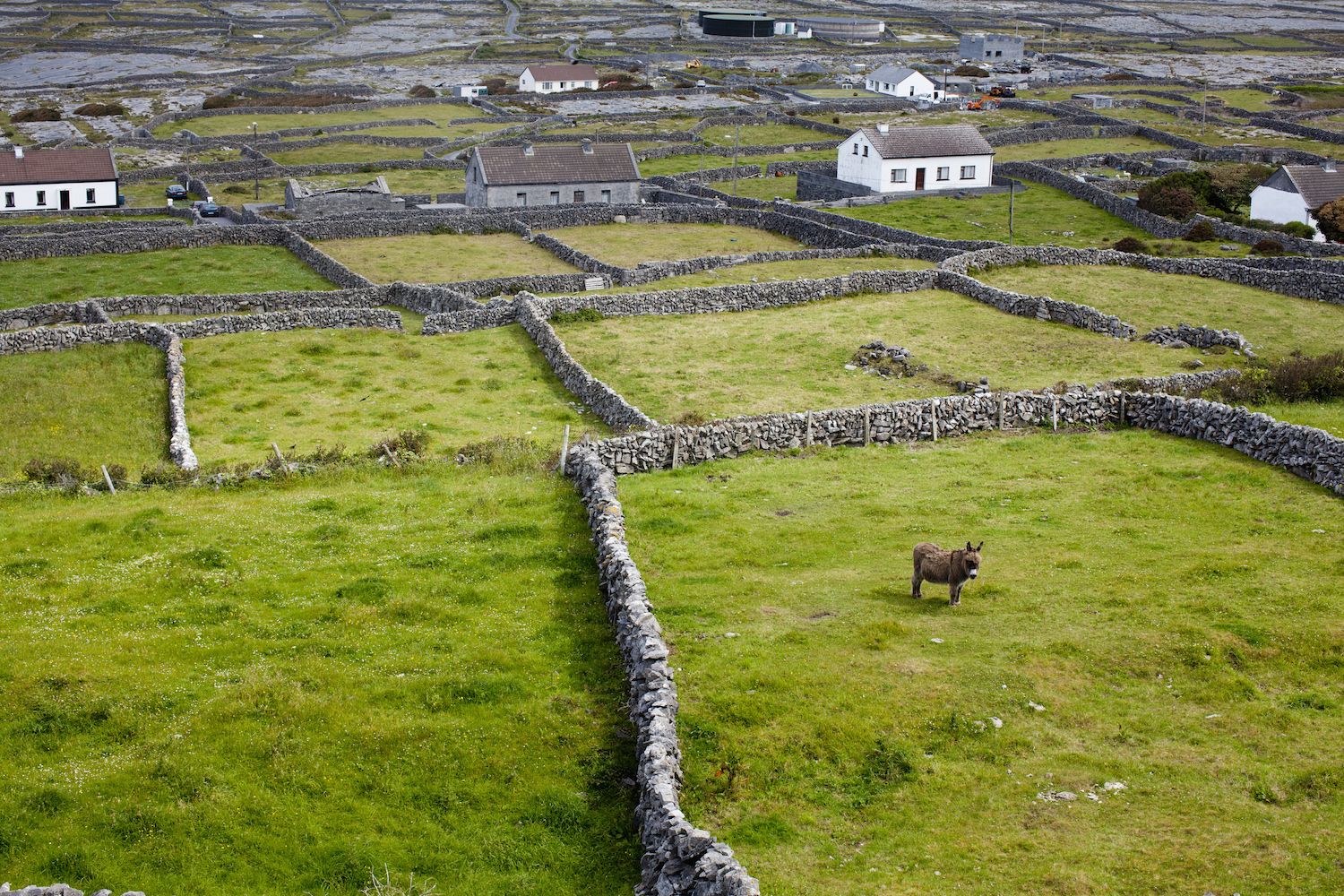Last week Taoiseach (Prime Minister) Brian Cowen was hit with a deadly double whammy, twin knockout punches that could eventually be killer blows for him.
The first blow was the publication of the official reports into the causes of the banking crisis here. These separate reports by the new Central Bank governor and by two independent international banking experts concluded that homemade factors, not external events, were the main cause of the meltdown in the Irish banking system.
It was not the Lehman Brothers collapse or the global financial crisis that came after that which caused the crisis here. External forces did make things here much worse, the reports said.
But this was largely a crisis of our own making, and one that was coming down the tracks here anyway.
That clear conclusion by the experts has blown apart the Lehman excuse which has been used continually by the government. The Lehman explanation was the one trotted out by Cowen and his ministers and even by ex-Taoiseach Bertie Ahern when he makes a comment these days.
Now the experts have revealed that this is nonsense.
The main factor in the financial and banking crisis here was not a ripple effect from Lehman. It was the huge Irish property bubble that was inflated by a massive increase in bank lending funded by foreign borrowing. It was caused by misguided government policies that allowed that situation to develop here over the last five to 10 years.
Who was the minister for finance during the critical years when our property market overheated to such a crazy level? Who was responsible for the misguided economic and financial policies and the weak system of regulation that allowed the banks to grossly inflate the bubble?
Brian Cowen, that's who.
It was on his watch that the banks engaged in completely irresponsible lending on a massive scale, a scale that far surpassed anything in the rest of Europe or the U.S.
It was on his watch that state spending, mainly fuelled by property taxes, went into overdrive, a situation that has left us now with a massive budget deficit.
And it was on his watch that the economy became much too dependent on the property boom, and the whole unsustainable bubble started to burst and then collapsed.
The hard-hitting report is devastating for Cowen because it confirms what people here have suspected for some time. He was asleep at the wheel.
Ahern may have been Taoiseach, but Cowen was minister for finance and he should have shouted stop. He should have cooled the market down and guided us to a soft landing. Instead he sat back and let it rip.
The result is that the economic and property collapse here has been much worse than in most other countries. Thanks to these official reports last week, people here now understand the appalling truth of what has happened.
They know just how big the mess is. They are angry and they are looking for someone to blame.
Thanks to these reports, Cowen's face is in the frame. It may have been Ahern's fault even more, but he's gone.
The present taoiseach, Ahern’s minister for finance, has to carry the can. And now, after these reports were published last week, he can never again use the Lehman excuse.
A couple of days after the banking reports appeared last week, unbelievably, it got even worse for Cowen when the latest Irish Times national opinion poll was published. This showed that his party, Fianna Fail, is still in third place and has fallen back down to the historic low in support it reached last September. The recent faint hope of a recovery for the party has been dashed, and it is once again facing wipeout in the next election.
That's something that has spooked the ordinary Fianna Fail members of the Dail (Parliament), many of whom now seem certain to lose their seats. And that makes Cowen's grip on the leadership weaker, even if there is no immediate challenger to him in sight.
But it wasn't the humiliating low level of support for Fianna Fail that was the most interesting aspect of the poll. The real headline grabber was that the poll showed the Labor Party has passed Fine Gael and has become the most popular political party in the state for the first time in its history.
The figures for party support, compared with the last Irish Times poll on January 20, were -- Fianna Fail, 17% (down five points); Fine Gael, 28% (down four points); Labor, 32% (up eight points).
Even worse for Fianna Fail was the fact that the poll was taken before the publication of the banking crisis reports. If it had been after it would probably have been even worse for Fianna Fail.
Even so, this seemed to be about as bad as it could be, with just 12% of voters satisfied with the way the government is running the country.
Fianna Fail has been in third place before in recent polls, with Fine Gael in prime position and Labor second. But Labor coming first in this latest poll somehow emphasizes the humiliation of Fianna Fail, once the monolithic party of de Valera that ruled the country for so long.
Labor coming out on top also shows the depth of public anger, and that people want a radical change away from the Tweedledum-Tweedledee choice offered by what up to now have been the two main parties, Fianna Fail and Fine Gael.
In fact this poll may be bad news for Fianna Fail, but in a way it is even worse news for Fine Gael and particularly for its leader Enda Kenny. It is clear evidence that people don't want either Cowen or Kenny as taoiseach after the next election.
At a time when Fianna Fail and the government are deeply unpopular, Fine Gael should be soaring ahead in the polls. Instead it is the Labor Party that is getting the benefit.
Fine Gael in this poll actually lost support, and increasingly Fine Gael supporters are blaming Kenny and his "charisma deficit."
Responding to this, the Fine Gael deputy leader Richard Bruton this week declared that he no longer has confidence in Kenny. On Thursday he is to challenge Kenny for the leadership at a Fine Gael party meeting.
Kenny has already responded by sacking Bruton as deputy leader and finance spokesman. So we are set for a serious showdown in Fine Gael, the result of which is difficult to call.
The popular and respected Bruton has been a scrupulously loyal deputy to Kenny up to now, but he clearly feels that the message in this latest national opinion poll cannot be ignored. That message is that people may be sick of Fianna Fail, but they just don't see Kenny as a potential taoiseach.
Bruton has widespread support in the Fine Gael party and among the public and may well win the vote on Thursday. Adding to the drama is the fact that Thursday is the day Cowen is facing a vote of confidence in the Dail.
But now the main focus will be on the dogfight in Fine Gael. At the very moment when Fine Gael needed to be together, they are in disarray.
Watching all this and beaming like the Cheshire Cat is the leader of the Labor Party Eamon Gilmore, who says that the poll proves what he has been saying for months now, that the next election will be a genuine three-way contest.
Gilmore says that not only is Labor now the party with the most support in the country, but he is now the leading candidate to be the next taoiseach.
Certainly the poll is impressive for Labor. It showed that Labor has consolidated its position as the biggest party by far in Dublin. But it also showed that Labor has picked up enough support to win seats right across the country.
Even so, this is just one poll, and it's hard to see the electorate repeating this in an election. Labor's poll triumph is more likely a mid-term protest as people vent their anger at the two big political parties.
That has not stopped some commentators here claiming that this marks the death of Civil War politics here (it was from the opposing sides in the Civil War that Fianna Fail and Fine Gael emerged).
One commentator even colorfully suggested that the poll "signals a potential shift of political power that could -- if sustained -- be every bit as momentous for Irish politics as the Bolsheviks takeover of the Winter Palace in the 1917 revolution was in Russia."
That's a reference to the Labor Party's socialist past, which is a bit unfair since the party is now a social democratic one, like all the other former socialist parties in Europe. But it is a reminder that Labor is very much to the left on economics as well as politics.
Gilmore has become the country's most popular party leader by avoiding saying how he would deal with our economic meltdown, or how he would close the huge budget deficit.
Instead of saying what he would do he spends all his time attacking the government for bailing out the banks and for cutting state workers' pay and cutting state services to save money. As always, Labor seems to think the answer lies in more taxes, but they won't be specific about that either.
At the moment Labor is soaring and Happy Gilmore is by far the most popular leader in the country, with 46% of people supporting him in last week's poll. But at some point he will have to answer the hard questions and face up to all those highly paid state workers we can no longer afford.
In the meantime, he can enjoy his day in the sun. And in the meantime, Cowen's long dark night goes on.
But it could be worse for Brian. He could be Enda Kenny.




Comments